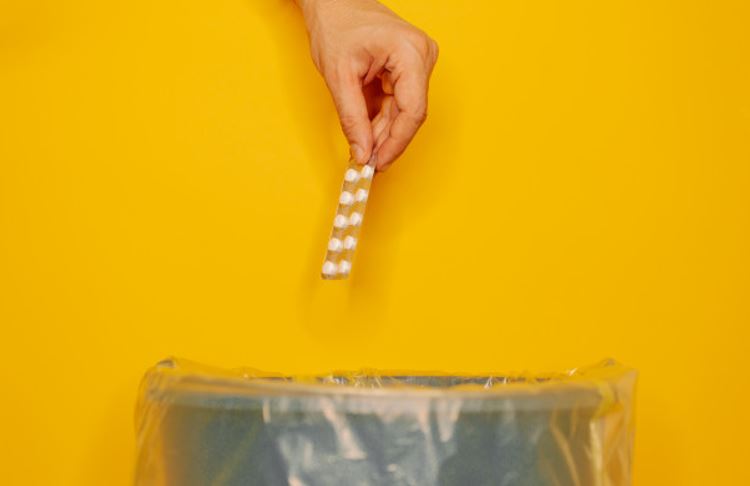The community needs to dispose of their medication or any pharmaceutical waste properly. Improper habits regarding this matter will endanger other people and risk the health of animals and the environment.
To address this matter, the Food and Drug Administration has provided some guidelines for people to follow when disposing of their medicines and other pharmaceutical waste like unused or expired medications, needles and syringes, and inhalers.
In most cases, people are advised to take their pharmaceutical wastes to an official drug take-back or mail-back office for proper disposal. These offices can be found throughout the country and even run some programs regularly. However, in the rare cases that you can’t find any of their offices or programs, you can ask your local enforcement office for guidance or even pharmacies to ask where you can dispose of these wastes.
However, the first step you can take to properly dispose of your wastes is to research it. That said, here are some steps you can take to properly dispose of your medicines and other pharmaceutical wastes. But first, let’s talk about why proper medication disposal is essential.
Why is proper disposal important?
Some drugs are dangerous to individuals who don’t have a prescription for them. In some cases, even, it can be fatal. This is especially true for children since their immune system is not fully developed yet. If you keep a pet in your home, these medications can also be harmful to them.
But how do you know if a medication is needed to be thrown away?
There are some things you can note in medicine that signifies that it must be disposed of.
- It’s past the expiry date.
- It’s unused for a long time.
- It’s unwanted.
- The container is damaged in any way.
- There are signs of contamination.
- It’s unidentified.
Improper disposal of your medicine and pharmaceutical waste can also be a danger for people and animals outside your home. Not only that, if you have a DEA authorized narcotic, it’s best if you mix them with dirt and flush them down the toilet to avoid them being retrieved and abused by other people.
Here are some easy steps to properly disposing of your medicines and other pharmaceutical wastes.
Reduce Pharmaceutical Waste Whenever Possible
If the doctor prescribed a set amount of medication, it is best to stick to it and not buy more than what is prescribed, especially if you aren’t sure that you can consume all of them before they’re expired.
You can also ask your doctor to prescribe only the right amount to see if the medication works for you. This way, you can check if the medication suits you. If it doesn’t, you won’t have that much waste when transferring medications.
Segregate Your Wastes
If you also possess biohazardous wastes and pharmaceutical wastes, it’s best to segregate them properly to avoid contamination. By segregating them, they will be in different landfills and will avoid contaminating each other.
Proper Disposal of Controlled Substances
In segregating your pharmaceutical wastes, you can pull out any controlled substances you don’t need, such as opiates and benzodiazepines. These substances should be brought back and taken care of following the DEA regulations.
The DEA will require you to contact a licensed reverse distributor to collect any controlled substances to either have them incinerated or destroyed. Usually, this takes a lot of time and paperwork to be done, but fortunately, the licensed reverse distributor will do all of the work for you.
Pull Out Chemotherapy Waste
When one of your loved ones or someone you know has undergone chemotherapy, it’s essential for everyone involved to learn about how to properly handle chemotherapy waste.
Chemotherapy waste is harmful to people, even if it’s just in trace amounts. Thus, they must be handled accordingly and safely. These chemotherapy traces are commonly found in used medication vials, IV tubing, and even gloves that the medical staff used.
With proper equipment and gear, you can place all of the things with chemotherapy traces in an FDA compliant yellow container. It would also help if you remembered that when these chemotherapy traced things are in bulk, it is considered hazardous chemical waste and should be dealt with accordingly.
Take-Back Stations for Unwanted or Expired Medications
In most cases, there are guidelines available for the proper disposal of medications. However, there are rare instances that there are no guidelines available. In these cases, you can research them yourself. Usually, these are easy and can be done by yourself, or you can take them to a drug take-back location.
There are a lot of drop-off stations that you can find in your area. However, if you can’t find any, you can ask your local enforcement officials for directions, or you can ask your pharmacist. They usually have take-back programs themselves. Just remember that the drop-off stations are only able to take the following:
- Prescription drugs
- Dietary supplements
- OTC medicine
Takeaway
Many guides and how-to articles are discussing prescription medication disposal of drugs and pharmaceutical waste on the internet. That said, you can visit the DEA or FDA website for some instructions and guidelines in proper disposal. Information is available almost anywhere, so there’s no reason for you not to know about them or not have the initiative to learn them.




